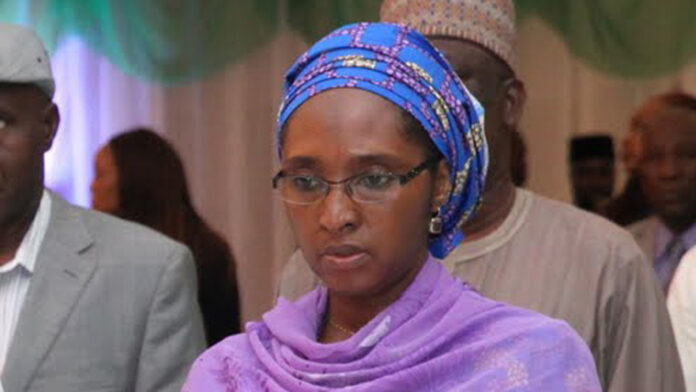The Minister of Finance, Mrs Zainab Ahmed, has said Nigeria is working to ensure it pushes its releases for capital projects from the 2018 budget to N1.1 trillion by the end of December.
The minister said this while answering questions at the public presentation of the 2019 budget highlights on Thursday in Abuja.
President Muhammadu Buhari, while presenting the 2019 Budget estimates to a joint session of the National Assembly on Wednesday, said that in spite of the delay in the passage of the 2018 Budget, N820.57 billion had been released for capital projects as at Dec. 14.
He unveiled a federal budget of N8.83 trillion for the 2019 fiscal year, N300 billion lower than the N9.1 billion being implemented for the current fiscal year.
According to Buhari, N4.04 trillion or 50.31 per cent is earmarked for recurrent expenditure and N2.03 trillion representing 22.98 per cent earmarked for capital projects.
Other estimates are N492.36 billion for statutory transfers, N2.14 trillion for debt servicing and provision of N120 billion as sinking fund.
Ahmed said that the N820 billion that was released was for Ministries, Departments and Agencies (MDAs) capital.
She added that there are also releases that go to the statutory transfer agencies released to them in bloc which includes personnel, recurrent and capital.
“There are also capital releases that are done as part of the capital supplementation and that is not part of the N820 billion.
“The N820 billion is 43 per cent of MDAs capital, we are working to push these releases to N1.1 trillion by the end of Dec. and that will include the statutory transfers service and the rest of the MDAs whose capital we are currently processing.”
On the issue of fuel subsidies, she said that the National Assembly did not announce fuel subsidies of N800 billion for the fuel marketers, rather, it was the fuel marketers that were demanding or asking that the Federal Government should be paying them that.
“The NASS approved N326 billion and that approval has been conveyed to us and we are currently in the process of issuing promissory notes to these fuel marketers.
“Last week, we released the first batch of N177 billion to the fuel marketers and we are doing some reconciliation processes to release the second batch to them perhaps before the year closes out or in any case as early as possible in the new year.”
Ahmed said that the Ministry of Finance was focused on revenue generation to be able to mobilise more domestic revenue so that it could better fund the nation’s budget which clearly had a deficit.
“You can see from the performance that there is a gap between what is planned for in the budget and what is actually generated.
“We are doing all we can and very soon we will be releasing new revenue initiatives which will include a new set of taxes on excise duties.
“We will also be working with the Federal Inland Revenue Service (FIRS) and the Nigeria Customs Service (NCS) on new and enhanced measures for enforcement and compliance.”
She added that the new measures may involve going to the NASS to amend some laws that have been identified to have some gaps and loopholes.
Sen. Udoma Udo Udoma, Minister for Budget and National Planning, said that of the total appropriation of N9.12 trillion, N4.59 trillion had been spent by Sept. 30, against the expenditure target of N6.84 trillion.
This, he said, represents 67 per cent performance, adding that spending on capital was prioritised in favour of critical ongoing infrastructure projects in the power, road, rail and agriculture sectors.
He added that implementation of the 2018 capital budget would continue into 2019 until the 2019 budget is passed into law.
Mr Ita Enang, Senior Special Assistant (SSA) to the President on National Assembly Matters (Senate), clarified the issue of constituency projects allocation and funds.
He said that the money for constituency projects and the zonal intervention does not go to the individual lawmakers but to the different ministries.
“A lot of people still think that the money for constituency projects is given to the lawmakers but it is not given to them, it is just allocation and it is not cash.
“The executive arm of government does not allocate the constituency project funds to the sectors, rather it makes a bullet allocation to the National Assembly.
“It is for the National Assembly members individually and severally to choose and decide what is priority in their own area,” he said.
Nigeria to push capital release to N1.1tn
RELATED ARTICLES




